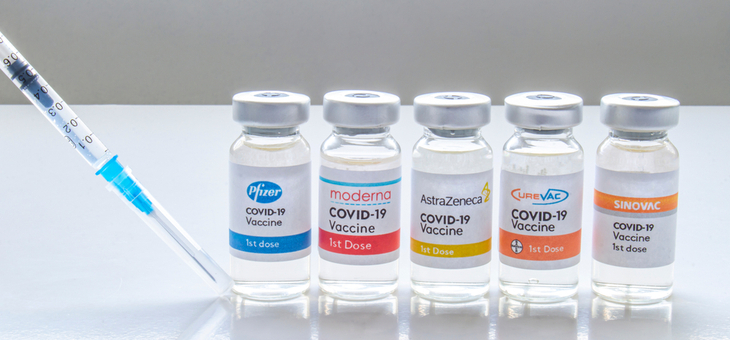Reports last week that Aussies who receive the AstraZeneca jab may not be guaranteed access to European countries took many by surprise.
As Travel Weekly puts it: “When it comes to international travel, not all COVID-19 vaccines are created equal.”
While the world plans for allowing vaccinated international travellers to move across borders, the vaccine you get may prevent you from moving freely between nations.
The Economist has investigated which vaccines are best when it comes to international travel.
Interestingly, the AstraZeneca vaccine is the most widely accepted vaccine, with approval from 119 countries.
Just not if you got your jab in Australia or India.
Read: AstraZeneca vaccine recipients not guaranteed access to the EU
The next most accepted vaccine is Pfizer, which will get you into around 90 countries, and Russia’s Sputnik V gives traveller’s the key to around 65 countries.
India’s Covidshield – made identically to the AstraZeneca jab – will get you into fewer than 50 countries, and China’s CanSinoBio will barely get a toe in the door of a handful.
To complicate matters more, your vaccine can still prevent you from freely travelling within some countries even after you’ve been approved to cross the border.
For example, the US doesn’t currently require proof of vaccine, but many venues there require proof of an FDA approved vaccine for entry, which, again, excludes those who’ve had the AstraZeneca jab.
Read: Vaccine passports on trial by Air New Zealand could enable air travel
The World Health Organisation (WHO) doesn’t want countries to ask travellers for proof of vaccination upon entry, and also recommends that people who are vaccinated should not be exempt from complying with other travel risk-reduction measures, such as undergoing a COVID-19 test or wearing a face mask in country.
“Data from vaccination studies show that some vaccinated persons may still become infected and develop disease which, in most instances, is mild,” says the WHO.
“Hence, international travellers who are vaccinated are unlikely to develop severe COVID-19 disease and consequently they do not impose increased strain on health systems at the countries of destination.
“However, their ability to infect others and the risk they pose for further transmission remain unknown.”
Read: We’re not there yet: refresher on face masks and protection
The World Travel & Tourism Council (WTTC) also claims government’s calling for vaccine certification fuels consumer concerns and deters them from booking overseas trips.
“The failure of countries to agree on a common list of all approved and recognised vaccines is of huge concern to WTTC, as we know every day travel is curbed, more cash-strapped travel and tourism businesses face even greater strain, pushing ever more to the brink of bankruptcy,” said WTTC senior vice president Virginia Messina.
“We can avoid this by having a fully recognised list of all the approved vaccines – and vaccine batches – which should be the key to unlocking international travel, not the door to preventing it.”
Do you think governments should call for vaccine certification of travellers upon entry? Would this deter you from travelling? Why not share your thoughts in the comments section below?
If you enjoy our content, don’t keep it to yourself. Share our free eNews with your friends and encourage them to sign up.

